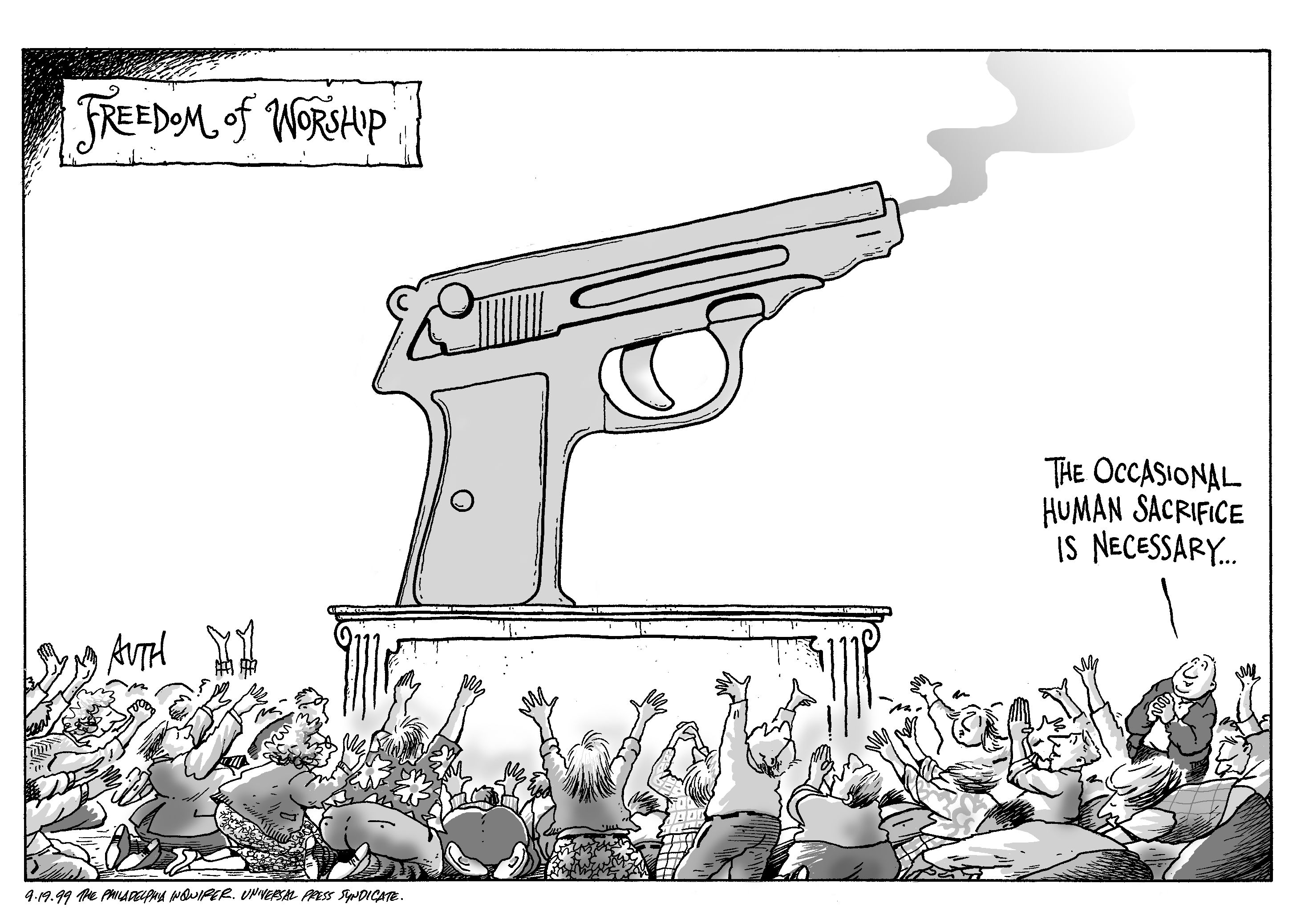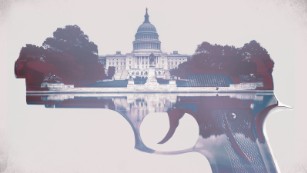Alan: There are twice as many firearm suicides in the United States as firearm homicides and for men handguns are the method of choice.
The Key Question
If ever more guns make America safer,
why are we not already the safest country in the the world?
Suicide risk linked to rates of gun ownership, political conservatism
https://www.sciencedaily.com/releases/2013/04/130405064029.htm
Handguns At Home And The Scourge Of Suicide Among Young People
Handguns At Home And The Scourge Of Suicide Among Young People
http://paxonbothhouses.
Legislation In Several States Bans Pediatricians From Talking About Gun Safety With Parents
http://paxonbothhouses.blogspot.com/2015/03/legislation-in-several-states-bans.html
Handguns At Home And The Scourge Of Suicide Among Young People
http://paxonbothhouses.
http://paxonbothhouses.blogspot.com/2015/03/legislation-in-several-states-bans.html
Handguns At Home And The Scourge Of Suicide Among Young People
http://paxonbothhouses.
One Heartbroken Mother's Plea To Other Parents: Ask If There's A Gun In The House
The Number Of People Who Use A Gun In Self-Defense Is Negligible
The Simple Truth About Gun Control: It Works In Those Countries That Have It
(Remember: Gun Control Is Not Gun Elimination)
What Second Amendment Evangelists Fail To Understand About Their Opposition
The Number Of People Who Use A Gun In Self-Defense Is Negligible
The Simple Truth About Gun Control: It Works In Those Countries That Have It
(Remember: Gun Control Is Not Gun Elimination)
What Second Amendment Evangelists Fail To Understand About Their Opposition
"Gun Cartoons and Gun Violence Bibliography"
"Gun Cartoons and Gun Violence Bibliography"
Study: 3 federal laws could reduce gun deaths by more than 90%
(CNN) Passing federal laws that require universal background checks for firearm purchases, background checks on ammunition purchases and firearm identification could reduce the rate of U.S. gun deaths by more than 90%, according to a new study.
"We wanted to see which restrictive gun laws really work, as opposed to saying 'restrictive laws work,' and figure out if we are pushing for a law which might not work," said Bindu Kalesan, assistant professor of medicine at Boston University and lead author of the study, which was published on Thursday in The Lancet.
Researchers arrived at the projection by looking at the number of gun-related deaths in every state in 2010 and the types of laws that existed in those states in 2009, including restrictive laws, such as background checks and child access prevention laws, and permissive laws, such as stand-your-ground laws.
They took into account differences in rates of gun ownership, unemployment and homicides that did not involve guns deaths.
Out of the 25 existing state laws that Kalesan and her colleagues studied, nine were associated with lower rates of gun-related deaths.
The researchers found the largest effects for universal background checks, which were associated with a 39% reduction in death, and ammunition background checks, which were associated with an 18% reduction in death.
Laws around firearm identification, which make it possible to determine the gun that fired a bullet, were associated with a 16% reductions in deaths.
Researchers projected that federal laws expanding background checks for firearms purchases would reduce the U.S. gun death rate by 57%, while background checks for ammunition purchases would cut gun death rates by 81% and firearm identification would reduce the rate by 83%. The researchers said it would take many years to lower the rates so far.
Although a federal policy known as the Brady Law requires background checks on individuals who want to buy a firearm from a licensed dealer, it leaves a large gap, as an estimated 40% of firearms are acquired through unlicensed sellers, such as some online and at gun shows.
Several states, including California, Rhode Island and New Jersey, have passed universal background check laws that require private sellers to perform background checks.
However, there are weaknesses even in state universal background check laws. Purchasers can sometimes drive into another state that does not require these background checks, Kalesan said.
Because of the shortcomings of the firearms background checks, "we were very happy when we got the result that background checks for ammunition is effective, and could be more effective than (firearm) background checks alone," she said. Illinois, Massachusetts and New Jersey require a license or permit to buy ammunition.
The researchers found that nine of the 25 laws they analyzed were linked to higher rates of gun-related deaths. Another seven laws did not seem to have an impact one way or the other on gun-related deaths.
Some of the laws that were linked with greater numbers of gun related deaths came as a surprise to the researchers. For example, bans on assault weapons, such as semi-automatic guns, were associated with a 15% increase in mortality.
"It could be that whoever wants to buy an assault weapon can go across the border and buy a weapon from a state that allows it ... and it could be that they're just buying more handguns in their state," in response to the ban, Kalesan said.
The researchers did not explore whether rates of gun-related homicide and gun-related suicide seemed to be affected differently by the different laws.
A recent study found that while rates of gun-related homicide have been dropping, cases of gun-related suicide have been on the rise and now outnumber homicide two to one.
In an editorial published with the study, Harvard School of Public Health Professor David Hemenway said the study was "a step in the right direction" to understand the scientific evidence about policies to reduce gun violence. But, he said, cutting mortality rates so dramatically is more complicated than simply implementing background checks for firearms and ammunition.
"That result is too large -- if only firearm suicide and firearm homicide could be reduced so easily," Hemenway wrote.
CNN reached out the National Rifle Association for comment about the study and is awaiting a response.
Although there is good evidence that state laws requiring universal background checks, as well as handgun-purchaser licensing or permit requirements, reduce homicides and suicides, the current study does not add to the evidence base, said Daniel Webster, director of the Johns Hopkins Center for Gun Policy and Research, who was not involved in the current study.
Webster recently carried out a study in which they found a 1995 Connecticut law requiring firearm purchasers to have a license was linked to a sharp drop in gun-related murders in the state. For that study, he and his colleagues compared murder rates in Connecticut with similar states.
The problem with the current study, Webster said, is that it compared the number of deaths between all states, which could vary in many more ways than the authors accounted for, such as differences in culture, race and ethnic makeup, poverty rates and access to mental health care.
"Not surprisingly, the findings don't make much logical sense when it comes to gun policies other than the finding that universal background checks are protective," Webster said. For example, it is not clear why there would be such a large association, as the study found, between firearm identification laws and reductions in gun-related deaths, he added.
Kalesan defended her approach by stating that there is good evidence that the four variables that they considered for the different states -- gun ownership, deaths not related to guns, unemployment and gun imports and exports -- are closely associated with gun deaths.
"This study is the first big step to figure out which of all the gun laws seem to be effective," Kalesan said.
Next, the researchers want to take a closer look at each individual law -- and in particular, the three that seem to be the most effective -- to confirm their impact, she added.



No comments:
Post a Comment